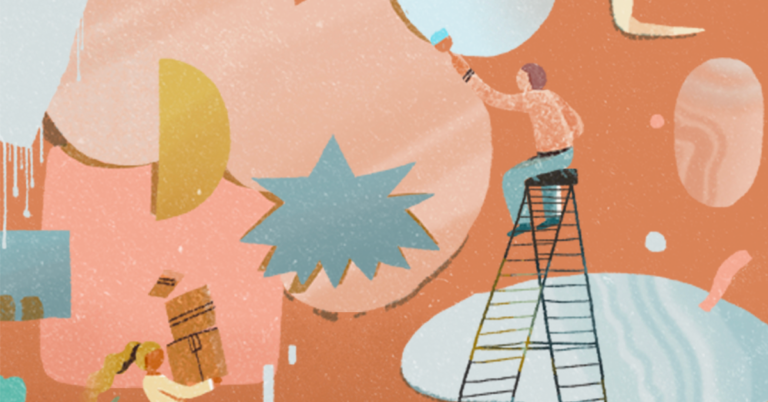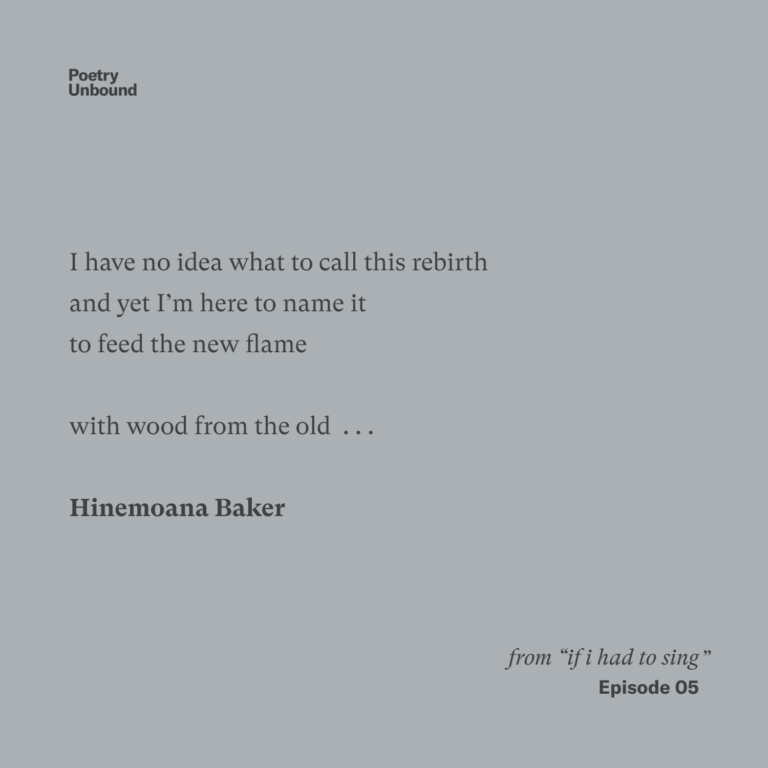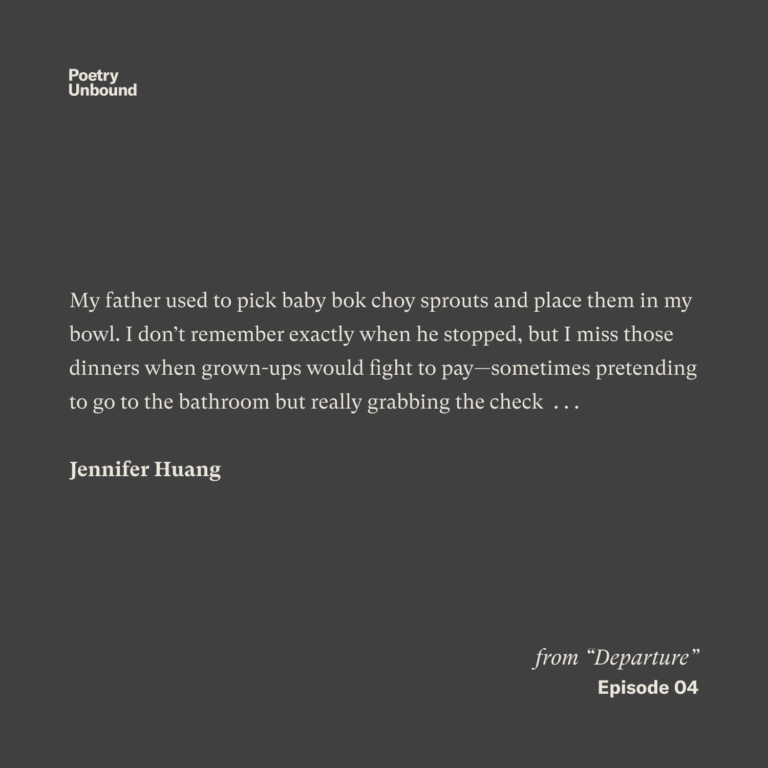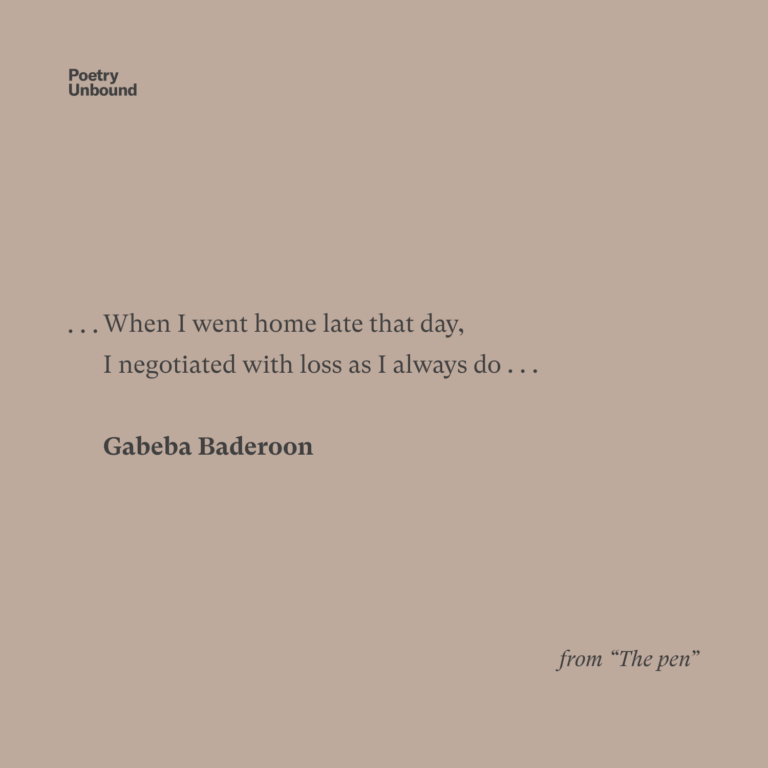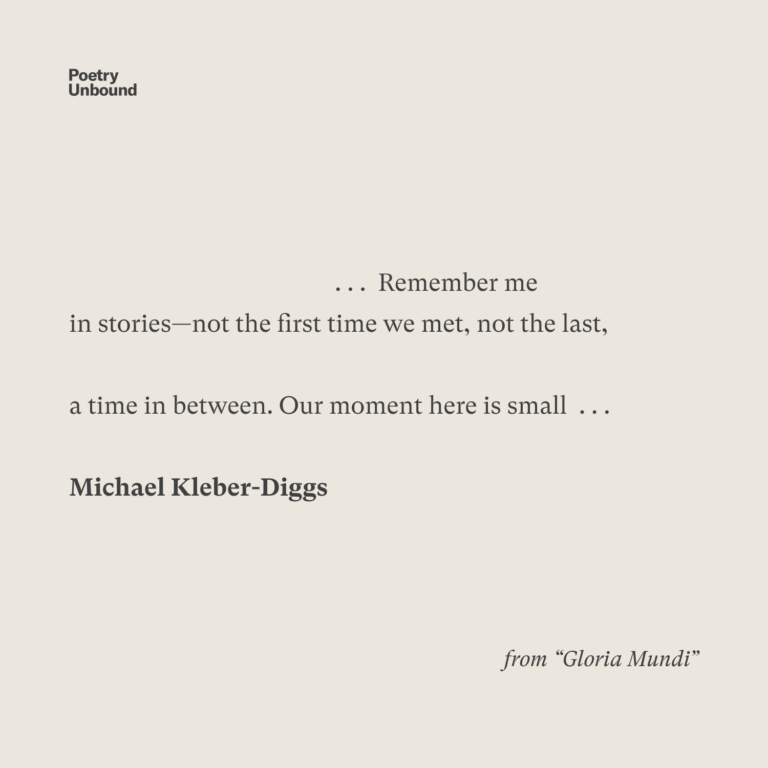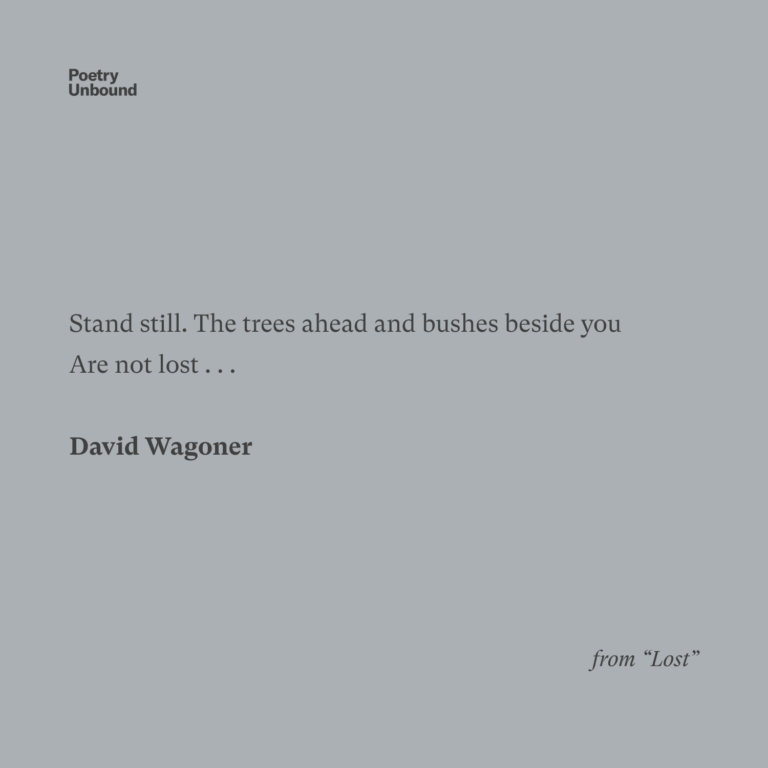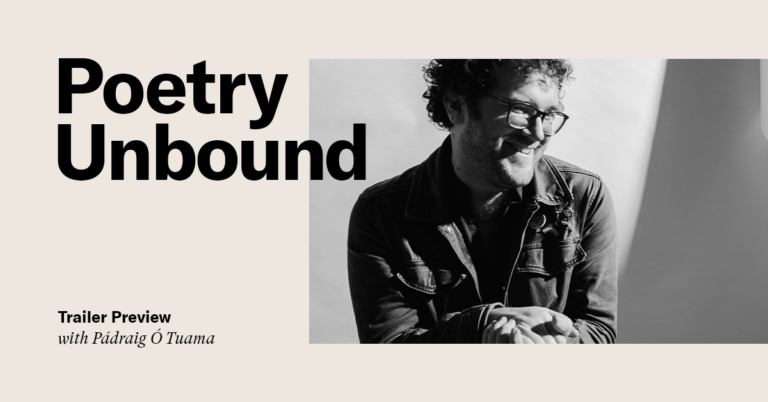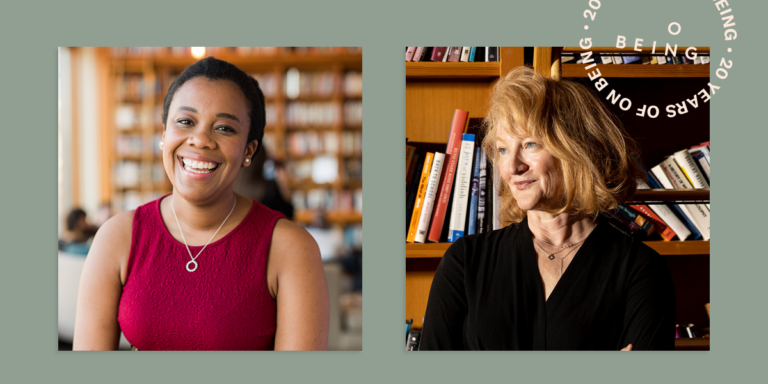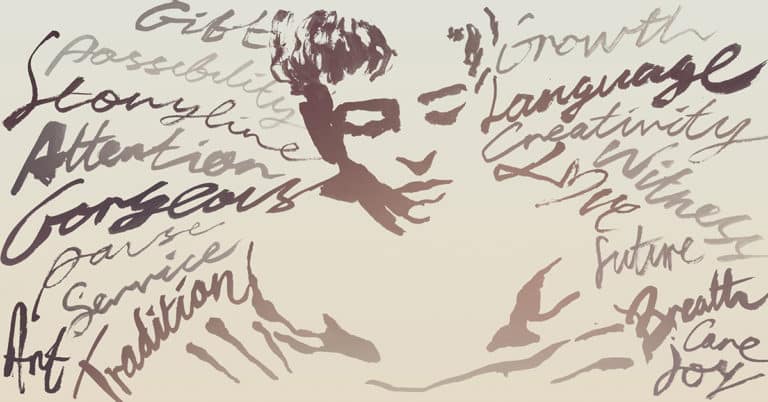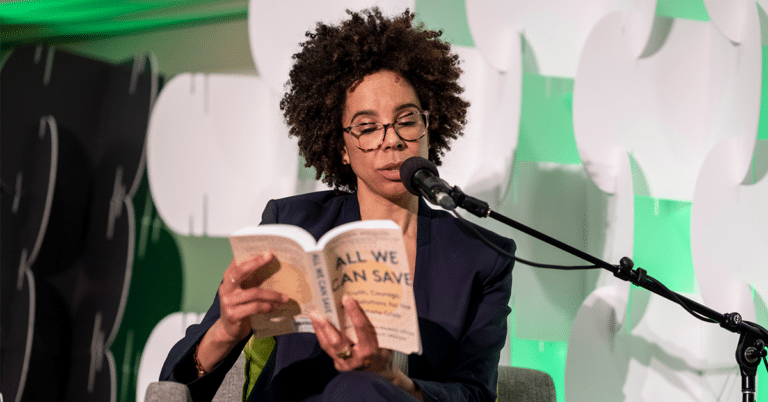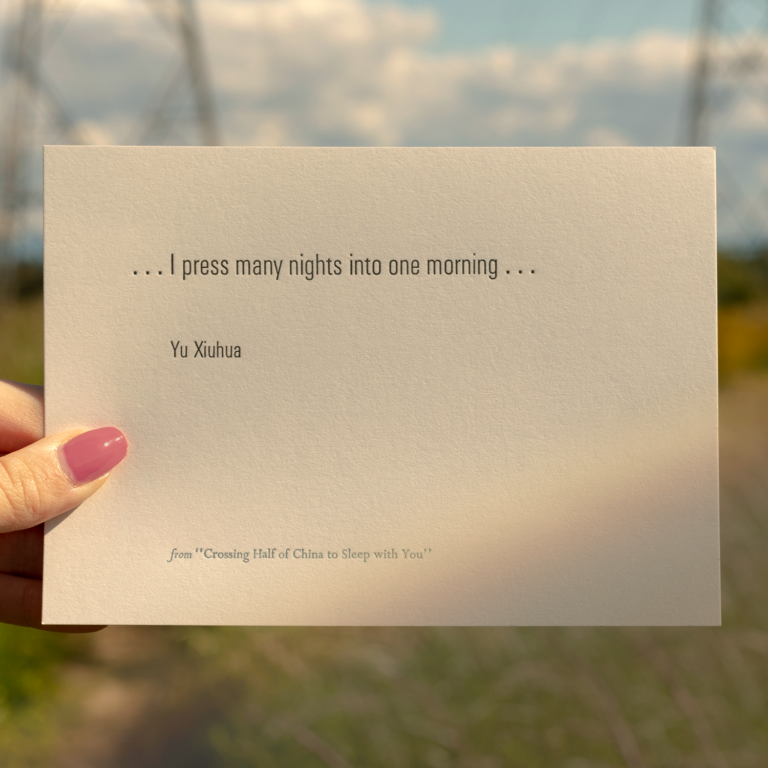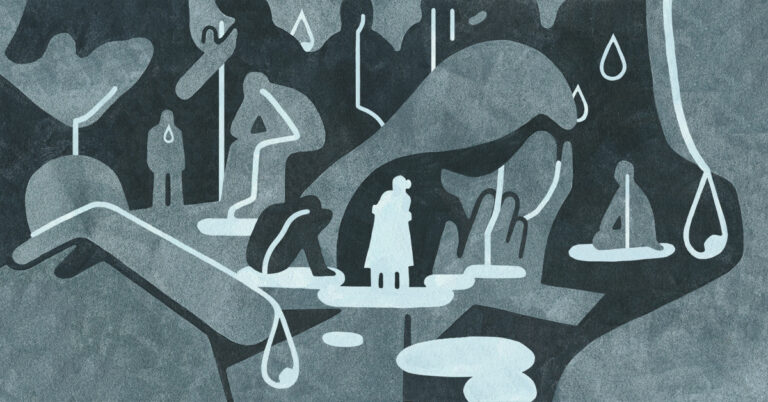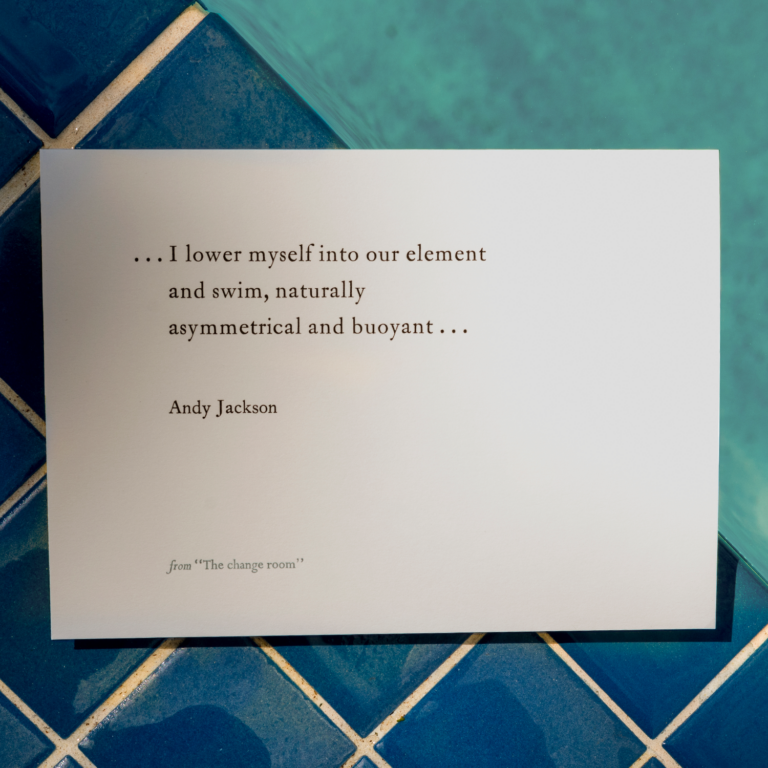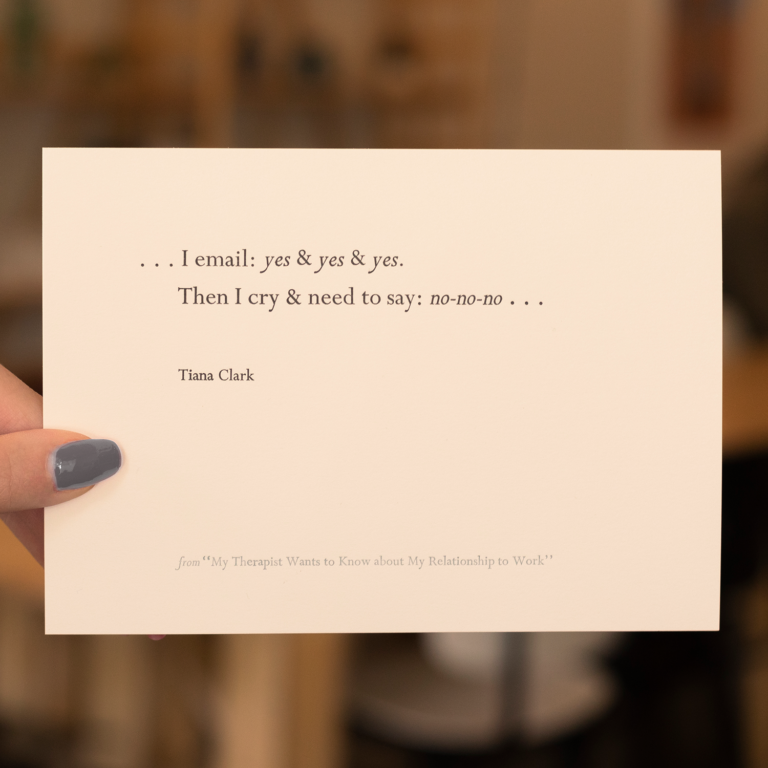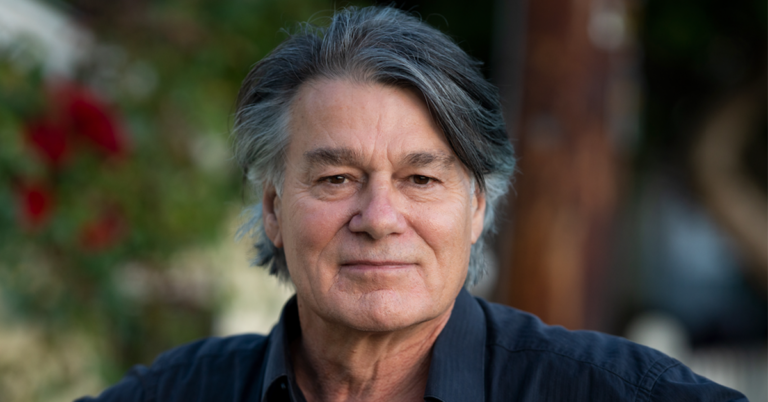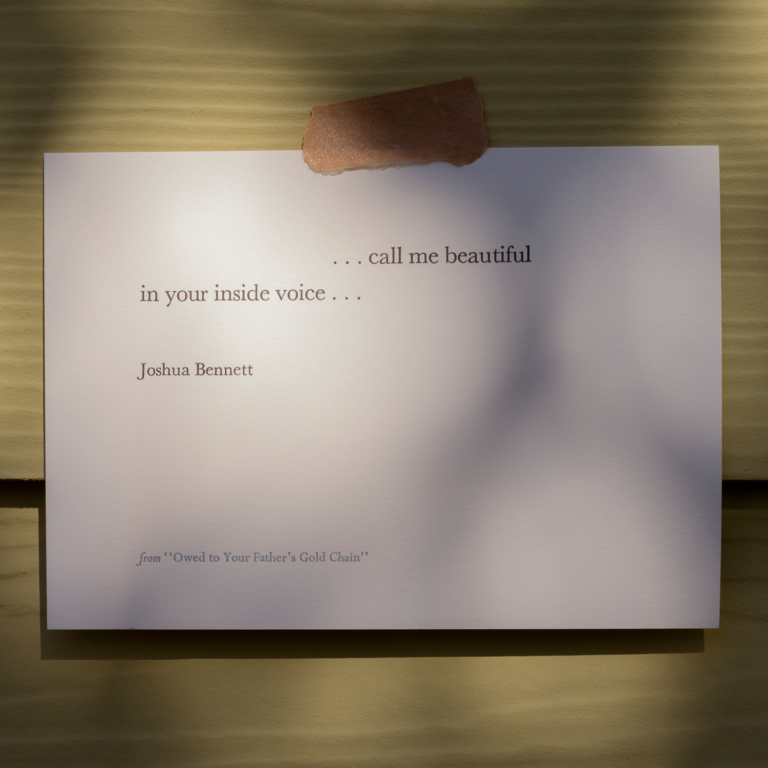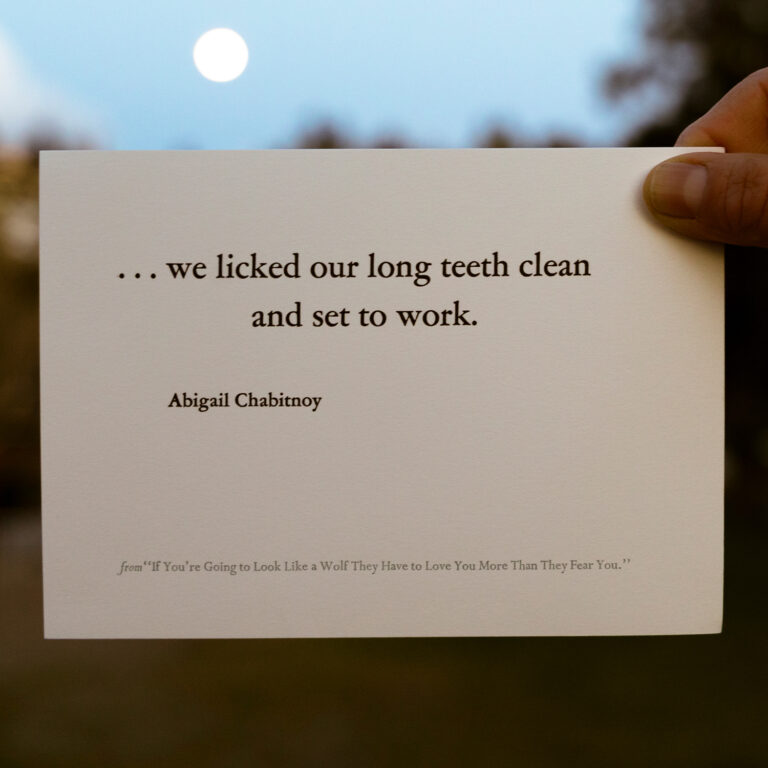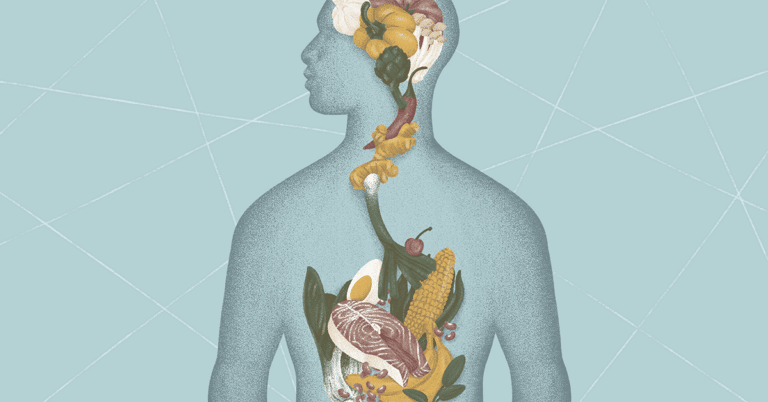We are fluent in the story of our time marked by catastrophe and dysfunction. That is real — but it’s not the whole story of us. There is also an ordinary and abundant unfolding of dignity and care and generosity, of social creativity and evolution and breakthrough. How to make that more vibrant, more visible, and more defining?
Podcasts
View
- List View
- Standard View
- Grid View
910 Results
In the aftermath of disaster, how do you sing a song to mark what’s gone, and praise what’s growing?
We’re pleased to offer Hinemoana Baker’s poem, and invite you to connect with Poetry Unbound throughout this season.
Pre-order the forthcoming book Poetry Unbound: 50 Poems to Open Your World and join us in our new conversational space on Substack.
What’s a moment when you grew up? When you realized the help you get might not be the help you want?
We’re pleased to offer Jennifer Huang’s poem, and invite you to connect with Poetry Unbound throughout this season.
Pre-order the forthcoming book Poetry Unbound: 50 Poems to Open Your World and join us in our new conversational space on Substack.
After her father’s death, a poet considers her relationship with loss.
We’re pleased to offer Gabeba Baderoon’s poem, and invite you to connect with Poetry Unbound throughout this season.
Pre-order the forthcoming book Poetry Unbound: 50 Poems to Open Your World and join us in our new conversational space on Substack.
Is there life after death? This poem says yes: where one life is part of a cycle of life that continues.
We’re pleased to offer Michael Kleber-Diggs’s poem, and invite you to connect with Poetry Unbound throughout this season.
Pre-order the forthcoming book Poetry Unbound: 50 Poems to Open Your World and join us in our new conversational space on Substack.
A person is lost, and in panic. A calm voice says strangely comforting things.
We’re pleased to offer David Wagoner’s poem, and invite you to connect with Poetry Unbound throughout this season.
Pre-order the forthcoming book Poetry Unbound: 50 Poems to Open Your World and join us in our new conversational space on Substack.
Poetry Unbound with host Pádraig Ó Tuama is back on Monday, September 26. Featured poets in this season include Rumi, Fiona Benson, Michael Kleber-Diggs, Victoria Adukwei Bulley, and many more. New episodes released every Monday and Friday through December 16.
Follow us on Apple Podcasts, Spotify, Google Podcasts, Overcast, or wherever you listen.
A special offering from Krista Tippett and all of us at On Being: an incredible, celebratory event — listening back and remembering forwards across 20 years of this show in the good company of our beloved friend and former guest, Rev. Jen Bailey, and so many of you. We offer it here as an audio experience, and we think you will enjoy being in the room retroactively. You will hear the voices of wise and graceful lives — of former guests, and of listeners from far-flung places. You may also catch references to things seen and witnessed throughout the event — including a stunning opening poem by our dear friend Maria Popova, composed of On Being show titles — which you can take in fully by viewing the recorded celebration in its entirety on our YouTube channel.
Krista interviewed the wise and wonderful writer Ocean Vuong on March 8, 2020 in a joyful, crowded room full of podcasters in Brooklyn. A state of emergency had just been declared in New York around a new virus. But no one guessed that within a handful of days such an event would become unimaginable. Most stunning is how presciently, exquisitely Ocean speaks to the world we have come to inhabit— its heartbreak and its poetry, its possibilities for loss and for finding new life.
“I want to love more than death can harm. And I want to tell you this often: That despite being so human and so terrified, here, standing on this unfinished staircase to nowhere and everywhere, surrounded by the cold and starless night — we can live. And we will.”
Amidst all of the perspectives and arguments around our ecological future, this much is true: we are not in the natural world — we are part of it. The next-generation marine biologist Ayana Elizabeth Johnson would let that reality of belonging show us the way forward. She loves the ocean. She loves human beings. And she’s animated by questions emerging from those loves — and from the science she does — which we scarcely know how to take seriously amidst so much demoralizing bad ecological news. This hour, Krista draws out her creative and pragmatic inquiry: Could we let ourselves be led by what we already know how to do, and by what we have it in us to save? What, she asks, if we get this right?
How far would you go for great love? And what distances would you cross?
We’re pleased to offer Yu Xiuhua’s poem, and invite you to sign up here for the latest from Poetry Unbound.
The conversation of this hour always rises as an early experience that imprinted everything that came after at On Being. Dr. Rachel Naomi Remen is one of the wise people in our world. She trained as a doctor in a generation that understood death as a failure of medicine. Yet her lifelong struggle with Crohn’s Disease and her pioneering work with cancer patients shaped her view of life. Becoming whole, she teaches, is not about eradicating our wounds and weaknesses; rather, the way we deal with losses, large and small, shapes our capacity to be present to all of our experiences. That arresting notion, and the distinction Rachel Naomi Remen draws between curing and healing, makes this an urgent offering to our world — of healing we are all called to receive and to give.
When all eyes seem to lock on you, how do you cope with self-consciousness? How do you look back?
We’re pleased to offer Andy Jackson’s poem, and invite you to sign up here for the latest from Poetry Unbound.
Life can feel exhausting sometimes: how do you find rest?
We’re pleased to offer Tiana Clark’s poem, and invite you to sign up here for the latest from Poetry Unbound.
It has ever and always been true, David Whyte reminds us, that so much of human experience is a conversation between loss and celebration. This conversational nature of reality — indeed, this drama of vitality — is something we have all been shown, willing or unwilling, in these years. Many have turned to David Whyte for his gorgeous, life-giving poetry and his wisdom at the interplay of theology, psychology, and leadership — his insistence on the power of a beautiful question and of everyday words amidst the drama of work as well as the drama of life. The notion of “frontier” — inner frontiers, outer frontiers — weaves through this hour. We surface this as a companion for the frontiers we are all on just by virtue of being alive in this time.
Sometimes when your world changes, it seems like everything turns towards you, fresh, new, and curious.
We’re pleased to offer Joshua Bennett’s poem, and invite you to sign up here for the latest from Poetry Unbound.
May 20, 2022
Abigail Chabitnoy
If You’re Going to Look Like a Wolf They Have to Love You More Than They Fear You.
How would you tell your own creation myth? Who — or what — would be in it?
We’re pleased to offer Abigail Chabitnoy’s poem, and invite you to sign up here for the latest from Poetry Unbound.
The British psychologist Kimberley Wilson works in the emergent field of whole body mental health, one of the most astonishing frontiers we are on as a species. Discoveries about the gut microbiome, for example, and the gut-brain axis; the fascinating vagus nerve and the power of the neurotransmitters we hear about in piecemeal ways in discussions around mental health. The phrase “mental health” itself makes less and less sense in light of the wild interactivity we can now see between what we’ve falsely compartmentalized as physical, emotional, mental, even spiritual. And so much of what we’re seeing brings us back to intelligence that has always been in the very words we use — “gut instinct,” for instance. It brings us back to something your grandmother was right about, for reasons she would never have imagined: you are what you eat. There is so much actionable knowledge in the tour of the ecosystem of our bodies that Kimberley Wilson takes us on this hour. This is science that invites us to nourish the brains we need, young and old, to live in this world.
The Pause
Join our constellation of listening and living.
The Pause is a monthly Saturday morning companion to all things On Being, with heads-up on new episodes, special offerings, event invitations, recommendations, and reflections from Krista all year round.
Search results for “”
View
- List View
- Standard View
- Grid View
Filters


